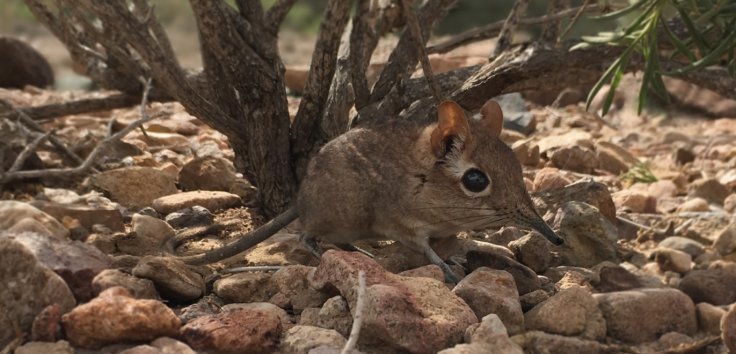A new study conducted by experts at Global Wildlife Conservation has discovered Somali sengi (Elephantulus revoilii), for the first time in 50 years in Djibouti. According to researchers, this tiny creature, popularly known as elephant shrew had been lost to science since 1968.
This mammalian creature has a long nose, large eyes, and a tuft of fur on its tail. According to a statement issued by Global Wildlife Conservation, this creature is closely related to elephants, aardvarks, and manatees.
"For us living in Djibouti, and by extension the Horn of Africa, we never considered the sengis to be 'lost,' but this new research does bring the Somali sengi back into the scientific community, which we value. For Djibouti, this is an important story that highlights the great biodiversity of the country and the region and shows that there are opportunities for new science and research here," Houssein Rayaleh, co-author of the study said in the statement.
During the study, researchers found at least 12 Somali sengis. The activity and the habitat in which they lived made scientists understand that they are not on the verge of extinction.
How Researchers Made This Re-Discovery?

Discovering this elephant relative was not at all an easy task for researchers who took part in this study. To find them, researchers set up more than 1,200 traps in 19 different locations. Luckily, researchers caught the Somali sengi on the first trap they set. Experts believe that this discovery is quite crucial, as it hints at the fact that several species lost to science might be still alive in some nooks of the planet.
"Usually when we rediscover lost species, we find just one or two individuals and have to act quickly to try to prevent their imminent extinction. This is a welcome and wonderful rediscovery during a time of turmoil for our planet, and one that fills us with renewed hope for the remaining small mammal species on our most-wanted list, such as the DeWinton's golden mole, a relative of the sengi, and the Ilin Island cloud runner," Robin Moore, a researcher at Global Wildlife Conservation, said.









